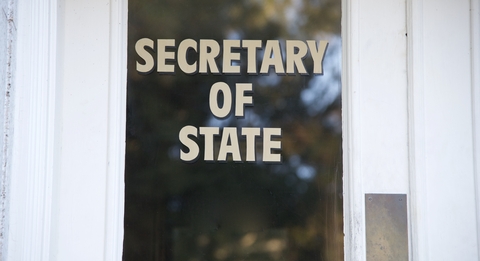Exploring Business Registration Records: A Key to Company Information
It’s vital that you learn all you can about a company when making business decisions, whether you’re considering a partnership, making an investment, or checking out a competitor. Business registration records offer a wealth of information, and–before getting started–it’s important to understand how what they are and how they work.
What are Business Registration Records?
Business registration records are official documents filed with a government agency, typically the Secretary of State here in the U.S. They are required by law for private and public companies when a business is first set up, and the firm must file annual and other periodic documents.
Why are Business Registration Records Important?
They protect the business – Once a company registers with the proper authorities, it acts as the official identification recognized by the state. This ensures that each business has a unique name and prevents any conflicts with other businesses. Registration also adds legitimacy, and it tells others that they are, in fact, a business.
They protect the public – Business registration records can help you verify that a company actually exists and whether it is operating legally. These records also inform the public about essential background information.
What Information Can You Find in Business Registration Records?
Depending on the jurisdiction, these documents may include these valuable nuggets:
Basic company information – Legal name, address, type of business entity (corporation, LLC, etc.), subsidiaries, date of formation, and other details
Ownership information – Names and addresses of owners, directors, or officers, as well as any ownership changes
Registered agent – The individual or entity responsible for receiving legal documents on behalf of the company
Business activities – A brief description of what the company does and who they serve
Capital structure – Information about the company’s authorized and issued shares of stock (for corporations)
How to Access Business Registration Records
The process for searching and retrieving business registration records varies by jurisdiction. Some popular online resources include:
Secretary of State websites – Most states offer online databases where you can search for business registration records. These are usually free but can be fee-based.
Public records websites – Some states and counties have online portals for accessing public records, including business registrations. Again, most of these are free, but some are fee-based.
Commercial databases – Aggregators like Dun & Bradstreet, LexisNexis, and Hoover’s offer comprehensive databases of business information, including registration records. These are fee-based.
Tips for Effective Research
Go directly to the source – Visit the Secretary of State’s website if you are looking for a specific company name and know where they operate. If not, and you’re casting a wide net, take advantage of the aggregated sources, but always verify at the source.
Use multiple sources – One source won’t answer all your questions or tell the full story, so use registration records as a starting point or to fill in some blanks. Look for clues and then expand your search, including search engines and other public records databases.
Be patient – Some databases may require a subscription or fee to access certain information. Be prepared to invest time and resources into your research. Identifying the right source and verifying results will take more time than you expect.
Manage expectations – Like any public records, results will vary, so make sure you and your clients are aware of what’s available, what’s missing, and any issues with the data. It’s important that everyone understands it’s not a quick search.
By exploring business registration records, you can gain valuable insights into a company’s background and make informed decisions about your business relationships. But make sure you understand how they work, what’s included (and what’s not), and differences among jurisdictions.
To learn more about finding and using business registration records, check out my online course, Mastering Online Public Records: Business Registrations.



